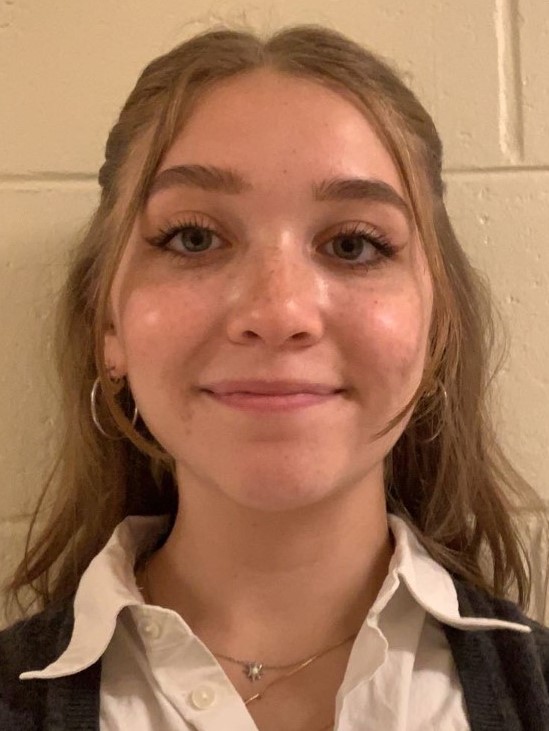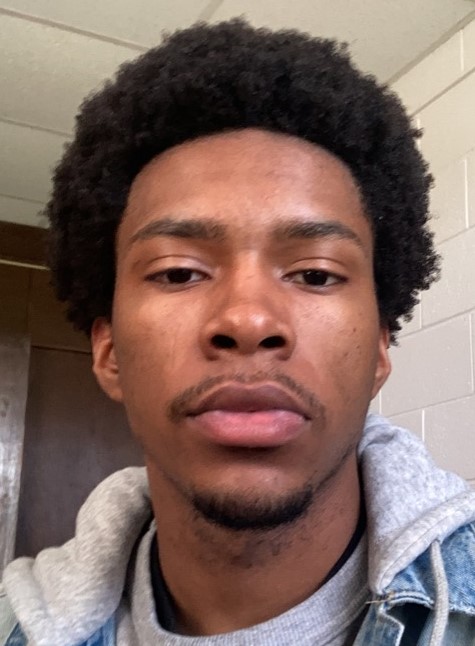
student adviser, helps students find affordable
overseas opportunities through study abroad
scholarships.
The number of students with limited financial means taking advantage of study abroad scholarships at Kalamazoo College will surge this fall thanks to a boost from K’s Center for International Programs (CIP) and the Benjamin A. Gilman International Scholarship Program.
Asia Bennett, a study abroad and international student adviser in the CIP, was among the first higher-education professionals in the country named a Gilman Ambassador through a new program in the 2021-22 academic year. Gilman’s goal with naming ambassadors was to empower a cohort of professionals including Bennett to share best practices in the application process with students for the purpose of increasing participation.
That goal proved to be successful nationally as 200 panelists reviewed nearly 50 applications each, and K students submitted more applications than ever before. In fact, the effort is helping the CIP push the number of Pell-grant eligible K students earning Gilman awards, worth up to $5,000 each, upward from four in the past year to 18 in the coming year. That’s at least nine more than at any other Great Lakes Colleges Association (GLCA) school, according to yet-to-be finalized numbers.
“I think we at K typically have about six Gilman applicants per cycle and maybe two to four recipients, so 18 is definitely a record for us,” Bennett said. “For just a year, I think we’ve been very successful and I’m excited for what next year will bring.”

Kalamazoo College students receiving
study abroad scholarships this fall.

underrepresented students such as
Gabriel Coleman ’24 go overseas.
About 33,000 students have received funds through Gilman, funded by the U.S. Department of State’s Bureau of Educational and Cultural Affairs, to study abroad or intern overseas since 2001. By awarding funds competitively to students with limited financial means, the Gilman assures that students from traditionally underrepresented groups, such as Gabriel Coleman ’24, will take advantage of opportunities such as K’s long-term liberal arts program in Quito, Ecuador. Students in the Ecuador program enroll in fall courses at the Universidad San Francisco de Quito, the first private university in that country. The program includes a homestay with a local host family, which allows students to immerse themselves in Spanish-language and Ecuadorean culture, and travel to the Galapagos Islands.
“The opportunity to try something new encouraged me to apply for the Gilman scholarship,” said Coleman, a Spanish major and art minor with a concentration in environmental studies. “I felt that doing this, plus telling others about the follow-up service project, would help me tell others about my overall experience and encourage them to study abroad.”
The students’ application process involves three essays including a personal statement about educational and career goals, a scholarship essay about what they would hope to do as an American citizen abroad, and what they plan to do as a result of their study abroad opportunity when they return. That was undaunting for Eliana Orozco ’24, an anthropology-sociology and French double major and classical civilization minor, who will pursue foreign study in Lyon, France.
“I like to think of it as being similar to the experience of applying to colleges, when we had to write about ourselves,” Orozco said. “I think writing about ourselves is actually a lot easier than we assume it to be. It really didn’t take much time, and once I just sat down and focused on what I wanted to say, it developed pretty easily.”
Should students need other opportunities, Bennett notes that the Gilman scholarship program isn’t the only one available to students looking for study abroad funding. As a result, Bennett wants students—even first-year students—to talk with the CIP early and often.
“Sometimes these opportunities are based on financial need or identity traits,” Bennett said. “Sometimes they’re based on the place where the student is going. We always recommend that students come into the CIP or send us an email, even during the summer, so we can talk about what works best for them.”
